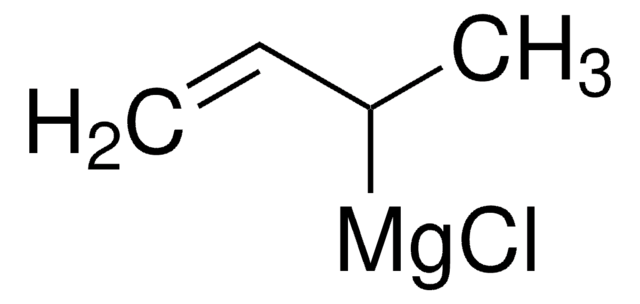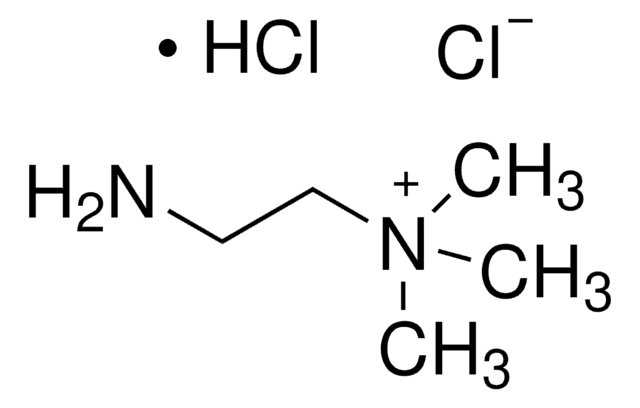703591
Ethylmagnesium bromide solution
3.4 M in 2-methyltetrahydrofuran
Synonym(s):
Bromoethylmagnesium
About This Item
Recommended Products
form
liquid
Quality Level
reaction suitability
reaction type: Grignard Reaction
greener alternative product characteristics
Safer Solvents and Auxiliaries
Use of Renewable Feedstocks
Inherently Safer Chemistry for Accident Prevention
Learn more about the Principles of Green Chemistry.
sustainability
Greener Alternative Product
concentration
3.4 M in 2-methyltetrahydrofuran
40 % (w/w)
density
1.142 g/mL at 25 °C
greener alternative category
, Aligned
SMILES string
CC[Mg]Br
InChI
1S/C2H5.BrH.Mg/c1-2;;/h1H2,2H3;1H;/q;;+1/p-1
InChI key
TWTWFMUQSOFTRN-UHFFFAOYSA-M
Looking for similar products? Visit Product Comparison Guide
Related Categories
General description
Application
2-Methyltetrahydrofuran (2-MeTHF): A Biomass-Derived Solvent with Broad Application in Organic Chemistry
Legal Information
Signal Word
Danger
Hazard Statements
Precautionary Statements
Hazard Classifications
Acute Tox. 4 Oral - Eye Dam. 1 - Flam. Liq. 2 - Skin Corr. 1B - Water-react 1
Supplementary Hazards
Storage Class Code
4.3 - Hazardous materials which set free flammable gases upon contact with water
WGK
WGK 2
Flash Point(F)
24.8 °F - closed cup
Flash Point(C)
-4 °C - closed cup
Personal Protective Equipment
Choose from one of the most recent versions:
Already Own This Product?
Find documentation for the products that you have recently purchased in the Document Library.
Customers Also Viewed
Our team of scientists has experience in all areas of research including Life Science, Material Science, Chemical Synthesis, Chromatography, Analytical and many others.
Contact Technical Service

![Chloro[1,3-bis(2,4,6-trimethylphenyl)imidazol-2-ylidene]gold(I) 95%](/deepweb/assets/sigmaaldrich/product/structures/154/609/370330fe-5c15-47b6-ad13-ea3dc87099d6/640/370330fe-5c15-47b6-ad13-ea3dc87099d6.png)



![Chloro[1,3-bis(2,6-diisopropylphenyl)imidazol-2-ylidene]copper(I)](/deepweb/assets/sigmaaldrich/product/structures/199/763/44637b2e-b87c-42a3-abc3-3985b6cd7d5d/640/44637b2e-b87c-42a3-abc3-3985b6cd7d5d.png)





